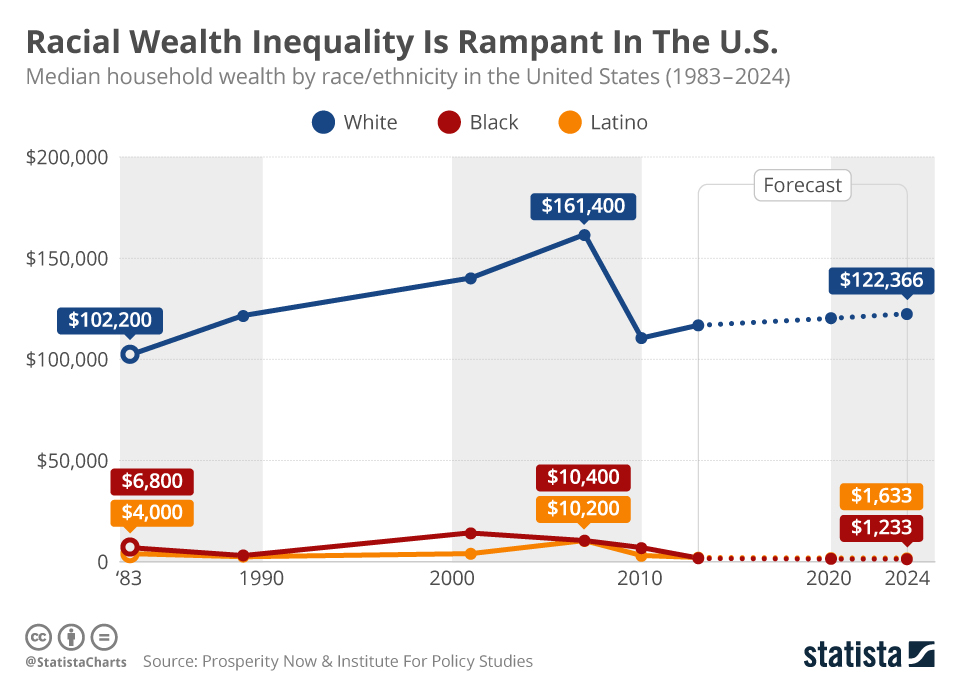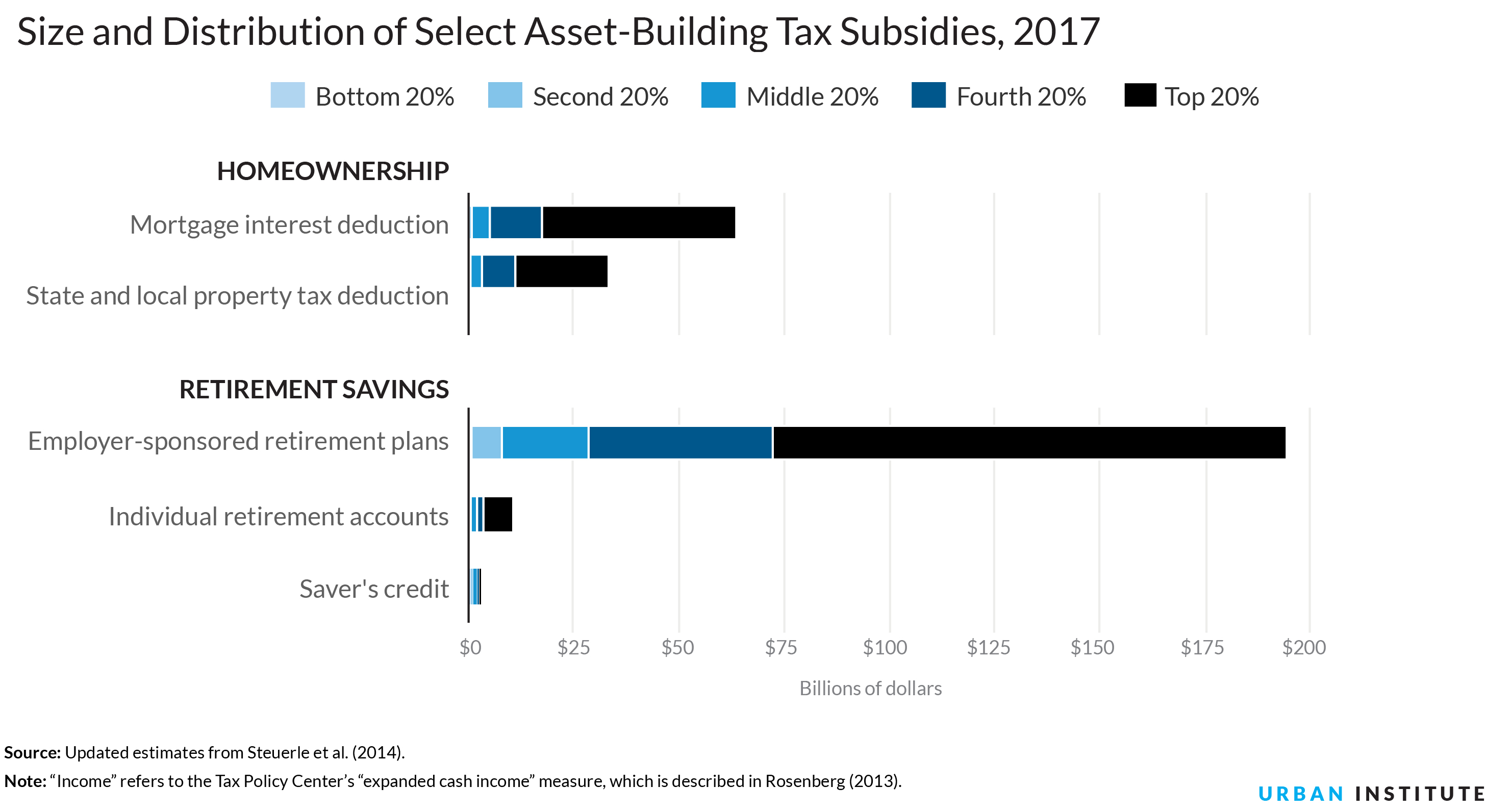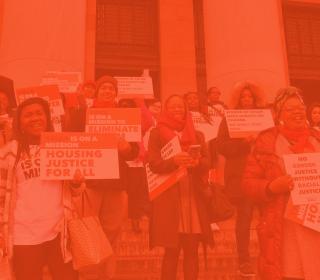Throughout the year, we at YWCA have been participating in online days of action around the different equal pay days for women. Just last month was Native Women’s Equal Pay Day, and in November will be Latinx Equal Pay Day. Over the past years of our work, awareness of the disparities in income by race and gender have been growing among our readers and their communities. But income and pay aren’t the only places where there is a gap, in fact, the scale of marginalization of women of color by our society is only truly revealed in the national wealth gap.

While income measures the amount of money that a woman makes, wealth is a measurement of the value of what she owns minus any debts. This can include savings, but it typically is more tangible things such as the value of a house, or a car. Wealth is an extremely important indicator of how well a person can weather a downturn in their fortunes. Whether its losing a job, divorce from a partner, or a medical emergency; wealth determines how well a person is doing a year after setbacks like these.

Of course, the racial wealth gap doesn’t effect people equally across gender either. Because women experience further discrimination by gender, there is even lower wealth among women of all races relative to men of the same race. Black single mothers have the lowest median wealth of any group, as they live at the intersection of multiple marginalized identities that American society oppresses. It is important to point out just how much more power racism has than sexism in wealth: women’s wealth is closer to the men’s in each racial category than it is to women of other races.

Researchers at Yale found that Americans consistently overrate the level of financial equality by race. Meaning, while the study found that respondents knew there was a racial income gap, they didn’t believe it was as large as it actually is. But among all areas of the economy that the psychologists asked people to estimate equality for, the misconception was greatest for wealth. In such a segregated society, and where race is a bigger determinate of wealth than gender is, it isn’t surprising that so few White Americans would know the depth of the inequality experienced by African Americans.
Unfortunately, the wealth gap is currently on track to only get worse in the future, median Black wealth is on track to fall to $0 by 2053. Even worse, Black single mothers are already at $0 of median wealth today. The Trump Administration’s tax cuts for the wealthy is sure to exacerbate the gap, and because wealth is passed down from parents to children, our low inheritance tax has been a big driver in perpetuating inequality.

The fact that wealth is inherited is what makes it a key carrier of historical discrimination into the present. The “Whites only” mortgage companies may be a generation behind us, but since the people who benefited from them passed that advantage on to their children, we live with the effects of that racism. If we want a truly equal society, where economic mobility isn’t just a platitude of empty patriotism, we need to stop diverting the majority of wealth-building incentives to the rich.
One way to make a positive difference in closing the racial wealth gap is to expand by law employer-sponsored retirement plans to low-income professions such as service sector jobs. Some companies like Starbucks already do this, and it would even the playing field for who gets to build savings and stock investments. Another critical area that needs reform is how renters receive no relief from paying rent, while wealthy homeowners get massive deductions from their mortgage payments. Senators are introducing bills for rent relief after successful pressure by advocacy groups, and expanding upon these plans in our local communities is a great way to narrow the gap in our own backyard.

Eric Bronson is the Digital Advocacy and Engagement Manager at YWCA. He manages the Firesteel blog in addition to its social media streams and action initiatives. A graduate of Oberlin College, Eric focuses on the intersection of race and gender within the American political economy.
We tell the stories of those with lived experiences of racism and sexism and invite supporters to take concrete actions to correct the root causes of disparity in our communities.

